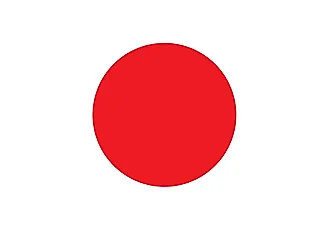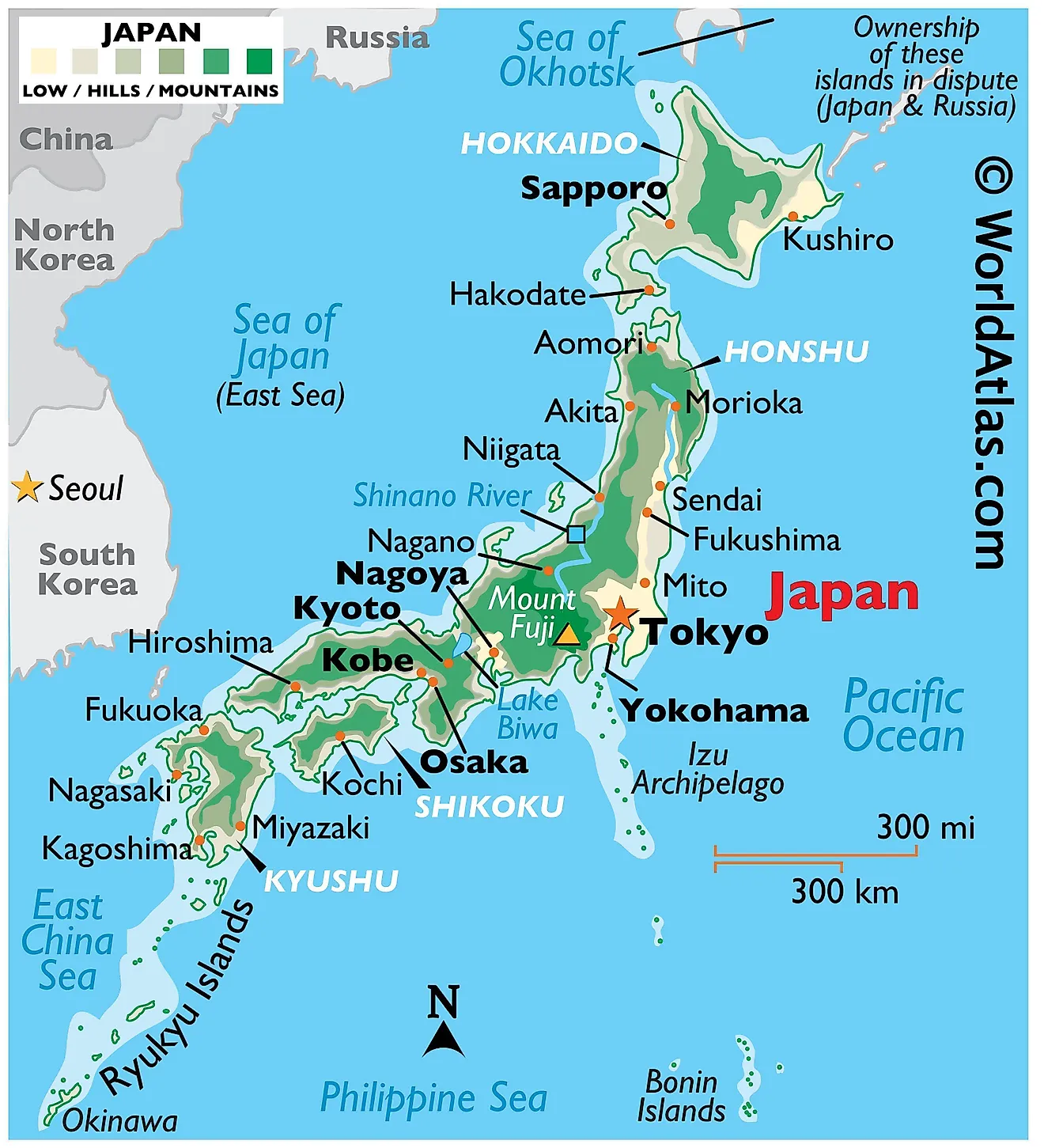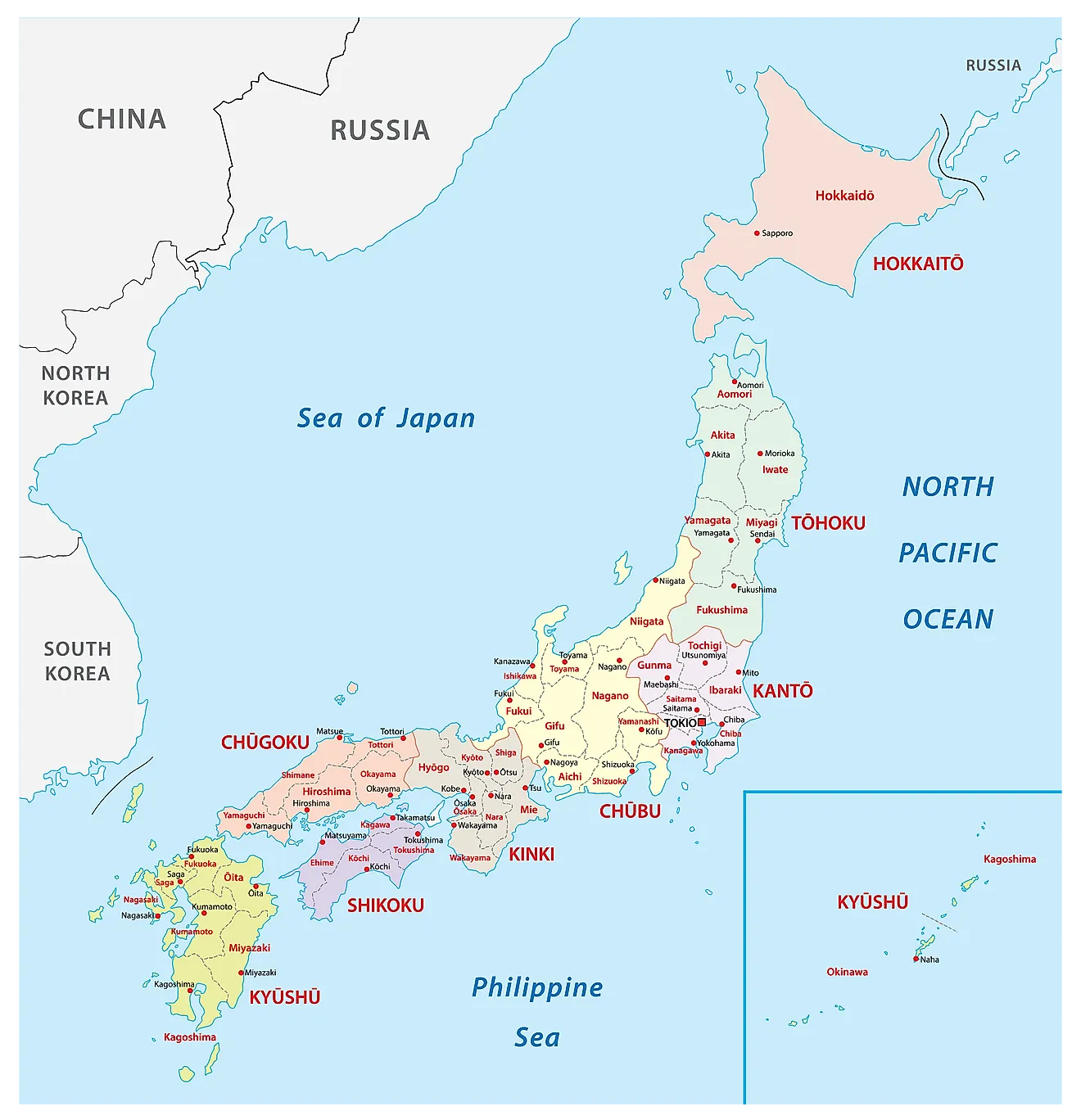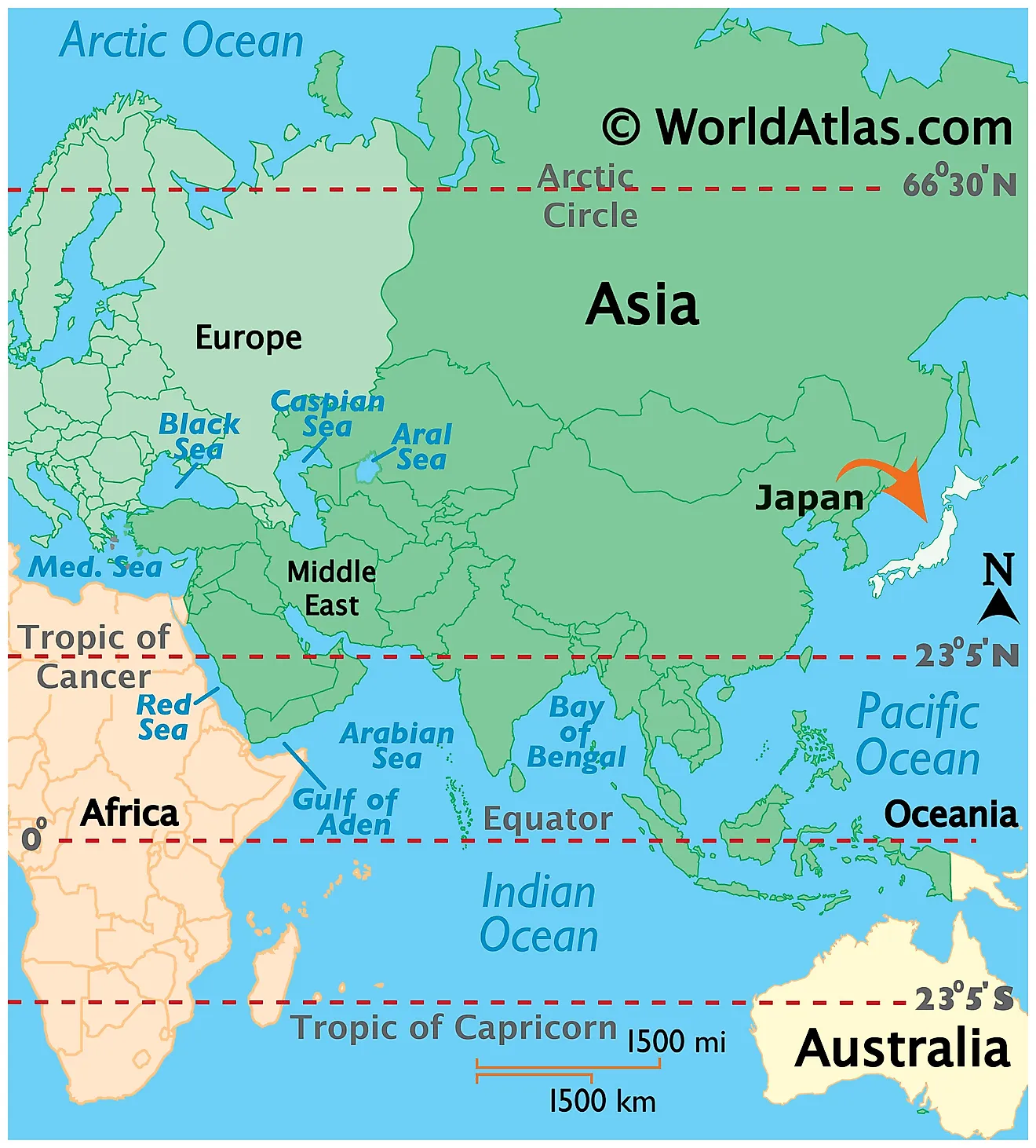Japan Maps & Facts (original) (raw)
Japan, an island country in East Asia, lies in the Pacific Ocean to the east of the Asian continent. It shares maritime borders with Russia to the north, China and South Korea to the west, and Taiwan to the south. Covering an area of approximately 377,975 km2 (145,937 mi2), Japan primarily consists of four main islands and numerous smaller islands. These main islands, from north to south, are Hokkaido, Honshu, Shikoku, and Kyushu.
Hokkaido: The northernmost of the four main islands, Hokkaido experiences a relatively cold climate with long winters and mild summers. This island contains expansive forests and mountain ranges, including the Daisetsuzan Mountain Range. Sapporo, its largest city, played host to the 1972 Winter Olympics. The region supports agriculture, with crops like potatoes and wheat being predominant.
Honshu: Honshu, the largest of the islands, serves as the main cultural, political, and economic center of Japan. Here lies Tokyo, the capital of the country, as well as other major cities like Osaka and Kyoto. Honshu features a variety of landscapes, ranging from the Japanese Alps that divide the island into its Pacific and Sea of Japan sides, to fertile plains and river valleys, like the Kanto and Kansai plains. This island also contains many of Japan's iconic sites, including Mount Fuji, the country's highest peak at 3,776 m (12,389 ft).
Shikoku: Located to the south of Honshu and separated by the Inland Sea, Shikoku is the smallest of the four main islands. It is characterized by mountainous terrain and boasts the Yoshino River, which is one of Japan's major rivers. Matsuyama and Takamatsu are notable cities, serving as cultural and economic centers of the region. Shikoku is also renowned for its 88-temple pilgrimage, which covers numerous historical Buddhist sites.
Kyushu: The southernmost of the main islands, Kyushu features active volcanoes, such as Mount Aso, as well as hot springs like those in Beppu. The region's climate tends towards subtropical, making it conducive to agriculture. Fukuoka, its largest city, acts as an economic and cultural epicenter, with strong ties to other parts of Asia.
Japan also contains various smaller islands. Some of the notable ones are the Nansei Islands, which include the Ryukyu Islands and Okinawa, to the south of Kyushu. The region has a distinct culture and history from the main islands and features a subtropical climate.
Major bodies of water that surround Japan include the Sea of Japan to the west, the East China Sea to the southwest, and the Pacific Ocean to the east. Japan's significant rivers, predominantly found on Honshu, include the Shinano, Tone, and the Yoshino. They play essential roles in agriculture, especially rice cultivation.
Prefectures of Japan Map
Japan is divided into 47 prefectures. In alphabetical order, these prefectures are – Aichi, Akita, Aomori, Chiba, Ehime, Fukui, Fukuoka, Fukushima, Gifu, Gunma, Hiroshima, Hokkaido, Hyogo, Ibaraki, Ishikawa, Iwate, Kagawa, Kagoshima, Kanagawa, Kochi, Kumamoto, Kyoto, Mie, Miyagi, Miyazaki, Nagano, Nagasaki, Nara, Nilgata, Oita, Okayama, Okinawa, Osaka, Saga, Saitama, Shiga, Shimane, Shizuoka, Tochigi, Tokushima, Tokyo, Tottori, Toyama, Wakayama, Yamagata, Yamaguchi and Yamanashi. These are further divided into sub prefectures and smaller subdivisions.
Located at the northwest of Tokyo Bay on the Pacific coast of central Honshu Islands – is Tokyo, the capital and largest city of Japan. The Greater Tokyo Area is the largest, most populous, urbanized metropolitan area in Japan as well as in the entire world. Tokyo also forms the largest economic, industrial and commercial center of Japan, apart from being the country’s administrative center.
Where is Japan?
Japan is an East Asian country comprising a chain of islands between the North Pacific Ocean and the Sea of Japan, at the eastern coast off the Asian Korean Peninsula. It is located in the Northern and Eastern hemispheres of the Earth. The island country stretches from the Sea of Okhotsk in the north to the East China Sea in the south. It is bordered by the Sea of Japan in the west. The country shares its maritime borders with North Korea, South Korea, Philippines, Taiwan, Russia and China.
Regional Maps: Map of Asia
Outline Map of Japan
Key Facts
| Legal Name | Japan |
|---|---|
| Flag |  |
| Capital City | Tokyo |
| 35 41 N, 139 45 E | |
| Total Area | 377,915.00 km2 |
| Land Area | 364,485.00 km2 |
| Water Area | 13,430.00 km2 |
| Population | 126,264,931 |
| Major Cities | Tokyo (37,194,105) Kinki M.M.A. (Osaka) (19,013,434) Chukyo M.M.A. (Nagoya) (9,569,328) Kitakyushu-Fukuoka M.M.A. (5,490,271) Shizuoka-Hamamatsu M.M.A. (2,937,359) Sapporo (2,666,112) Sendai (2,342,302) Hiroshima (2,067,591) Niigata (797,865) Kumamoto (738,415) |
| Currency | Yen (JPY) |
| GDP | $5.08 Trillion |
| GDP Per Capita | $40,246.88 |
This page was last updated on August 9, 2023


